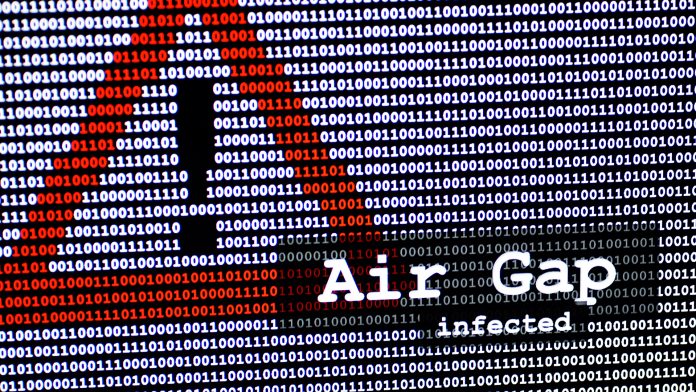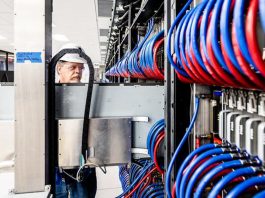Researchers have discovered that quantum computing could pave the way for air-gapped computers to be hacked.
Air-gapped computers are supposedly the safest type of cyber software around and were thought to be immune to data theft.
Large businesses and government agencies typically store their most valuable and confidential information, such as files relating to research and development or intellectual property, on these types of servers.
As a result, the organisation’s most sensitive data is protected from direct cyber attacks and viruses that might spread through the rest of its IT system. Off-grid, the air-gapped server is hard for hackers to locate.
Quantum computers can pose huge threats to cybersecurity
According to CEO of Cystel and cybersecurity expert Dr Meera Sarma, a criminal armed with a quantum computer, accessible via the cloud, would now be capable of hacking air-gapped computers through the organisation’s electricity supply.
Long seen as the stuff of science fiction, quantum computers harness the power of quantum mechanics to solve complex problems far faster than a conventional computer.
Dr Sarma explained: “Electronic devices all have distinct energy consumption patterns, and even an off-grid server will have a unique signature. This is usually a sound frequency that can be identified and measured using a quantum scanner.
“In order to find it, a cyber attacker would just need to perform a couple of quick scans, the first an IP scan to reveal the networked servers within a company, followed by a power consumption scan.
“Any air-gapped server, which will be power-hungry, will then stick out like a sore thumb.”
However, if the server is offline, then how can the hacker gain access?
“There are a limited number of server manufacturers, and each server produces a distinct noise signature.
“Through monitoring the power readings, a skilled hacker will be able to work out the make and model of the air-gapped computer, which will help them build a picture of its update schedule,” said Dr Sarma.

Can we spot cyber attacks on air-gapped computers?
For now, a vicious attack on advanced software remains undetectable.
With a successful infection, an organisation may not even realise its air-gapped computer has been hacked due to the lack of an unidentifiable signature.
Dr Sarma added: “Also, because the number of people with clearance to access an air-gapped server is small, if and when a data hack is spotted, they will be the prime suspects.”
The future of quantum computing
While quantum computing is not yet commonplace, the power of this technology guarantees it will be a game-changer for cyber crime.
Therefore, businesses must take notice and take steps to protect their air-gapped computers.
Dr Sarma said: “Quantum-based attacks are a real threat and could wreak far greater havoc than established cyberattacks, lingering for longer before being discovered, if at all.
“The financial impact and loss of data from such attacks are likely to be on a scale we have not witnessed before. While there are arguments that such a scenario is a while away, such complacency poses severe risks, especially with quantum computers now accessible via the cloud.”
She concluded: “The Government and sectors critical to the UK economy, such as banking, healthcare, and utilities, need to assess quantum-based risks as a matter of urgency and develop policies to secure against future cyberattacks that could have devastating economic implications for the UK.”









